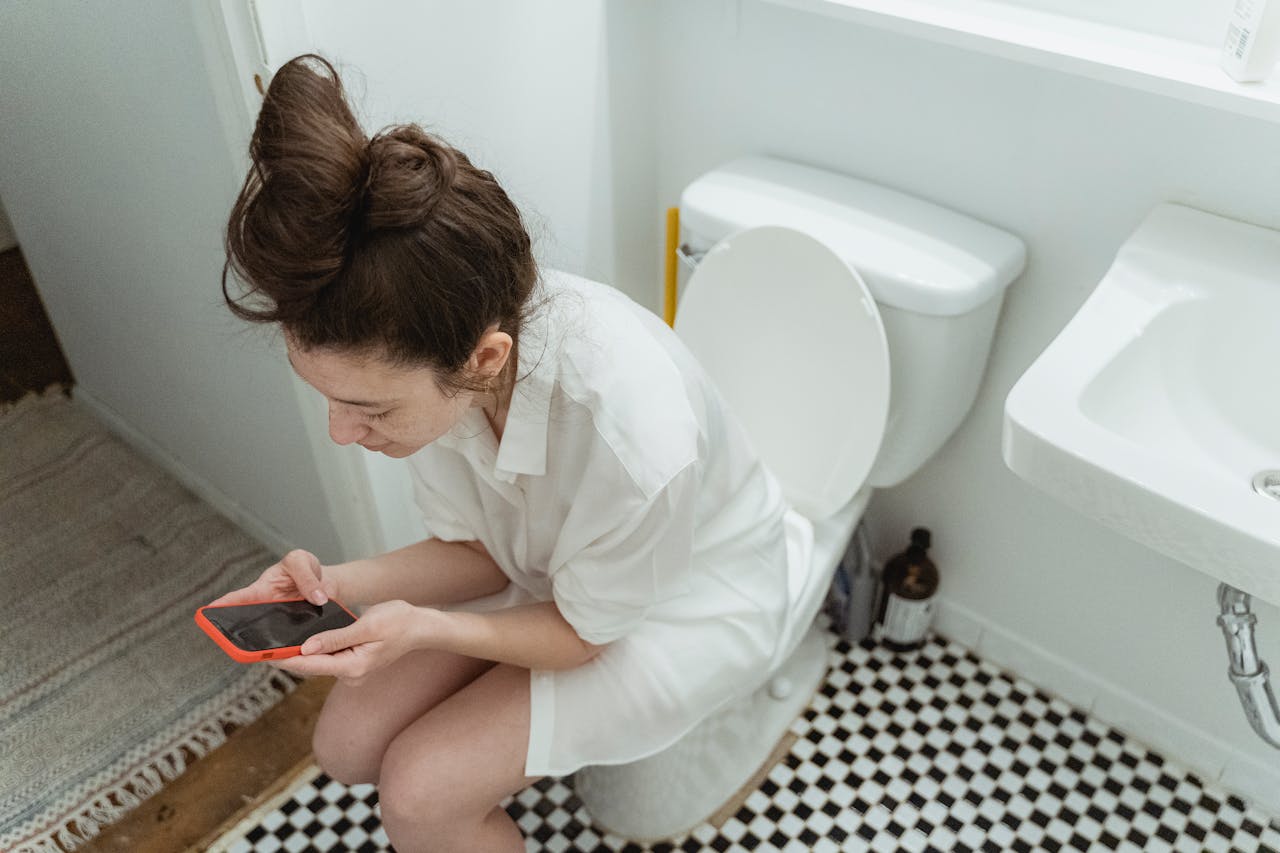Scrolling through social media while sitting on the toilet might be costing you more than just time. A new study published in the journal PLOS One reveals that smartphone use during bathroom visits increases the risk of hemorrhoids by 46%.
Researchers at Beth Israel Deaconess Medical Center in Boston examined 125 adults who were undergoing colonoscopies as part of a bowel cancer screening program. The team found that two-thirds of participants admitted to using their phones while on the toilet.
The connection between phones and hemorrhoids isn’t about the devices themselves but rather how they change bathroom behavior. People who brought their phones to the bathroom spent significantly more time sitting on the toilet—37% of phone users remained seated for more than five minutes compared to just 7% of non-users.
“The likely explanation is that prolonged sitting increases pressure in the veins around the rectum, which can contribute to hemorrhoids,” explained Dr. Ernesto Gonzaga, a gastroenterologist from the Hospital of the University of Pennsylvania, who was not involved in the study.
Toilet seats provide less support for the pelvic floor than regular chairs, leading to increased pressure on the anal veins when sitting for extended periods. This pressure can cause the veins to become swollen and inflamed, resulting in hemorrhoids.
Dr. Trisha Pasricha, a senior researcher at Beth Israel Deaconess Medical Center, noted that modern smartphone apps are designed to capture attention more effectively than traditional bathroom reading materials. “The whole business model of these apps is to make you lose track of time,” she said. “Our pre-TikTok ancestors were just reading a newspaper or whatever they could find. It wasn’t distracting to the same level.”
For those unwilling to part with their phones during bathroom visits, Dr. Pasricha suggests setting strict limits: “Set a two TikTok limit,” she advised. “What you shouldn’t be doing is getting so trapped in this cycle of scrolling and watching TikTok that you lose track of why you came here in the first place.”
The study’s lead author, Dr. Chethan Ramprasad, offered more direct advice: “Do what you need to do, then stand up and move on. Don’t turn the bathroom into a scrolling break.”
Hemorrhoids affect about 1 in 20 Americans and approximately half of adults over age 50. These swollen blood vessels around the anus and rectum can cause itching, pain, discomfort, and rectal bleeding. While most cases resolve with conservative treatment like increased fiber intake, soothing creams, or sitz baths, some require surgery.
Similar Posts
Traditional risk factors for hemorrhoids include constipation, straining during bowel movements, low fiber intake, pregnancy, obesity, and a sedentary lifestyle. The study’s findings suggest that phone-enabled prolonged sitting adds another risk factor, particularly concerning for younger generations who almost universally bring phones into the bathroom.
Dr. Gonzaga pointed out that the study does have limitations. Its small sample size and reliance on self-reporting mean it doesn’t definitively prove that phone use directly causes hemorrhoids. He called for more research to establish a clearer connection.
The researchers also noted that phone users reported less exercise than non-users, suggesting broader lifestyle patterns might contribute to hemorrhoid risk. This highlights the importance of considering multiple factors when assessing the condition.
Experts now recommend limiting toilet time to just a few minutes per visit and leaving phones outside the bathroom. For those experiencing toilet-related struggles, specialists suggest addressing underlying issues like constipation rather than extending bathroom sessions.
With hemorrhoids already accounting for millions of doctor visits and substantial healthcare costs annually, these findings raise concerns about potentially increasing rates among younger phone users who may develop the condition earlier than previous generations.
The next time nature calls, consider whether that TikTok video or email is worth the potential discomfort of hemorrhoids—your body might thank you for keeping bathroom breaks both phone-free and brief.



















